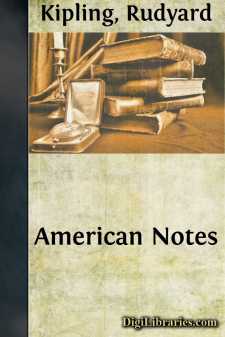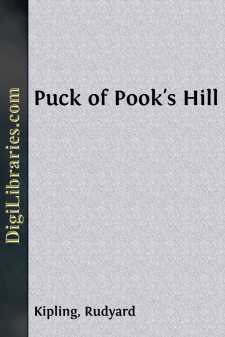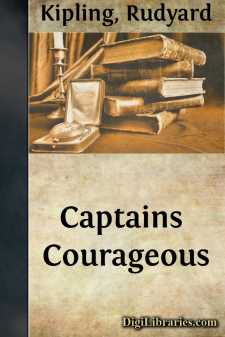Categories
- Antiques & Collectibles 13
- Architecture 36
- Art 48
- Bibles 22
- Biography & Autobiography 813
- Body, Mind & Spirit 142
- Business & Economics 28
- Children's Books 16
- Children's Fiction 13
- Computers 4
- Cooking 94
- Crafts & Hobbies 4
- Drama 346
- Education 46
- Family & Relationships 57
- Fiction 11829
- Games 19
- Gardening 17
- Health & Fitness 34
- History 1377
- House & Home 1
- Humor 147
- Juvenile Fiction 1873
- Juvenile Nonfiction 202
- Language Arts & Disciplines 88
- Law 16
- Literary Collections 686
- Literary Criticism 179
- Mathematics 13
- Medical 41
- Music 40
- Nature 179
- Non-Classifiable 1768
- Performing Arts 7
- Periodicals 1453
- Philosophy 64
- Photography 2
- Poetry 896
- Political Science 203
- Psychology 42
- Reference 154
- Religion 513
- Science 126
- Self-Help 84
- Social Science 81
- Sports & Recreation 34
- Study Aids 3
- Technology & Engineering 59
- Transportation 23
- Travel 463
- True Crime 29
Rudyard Kipling
Rudyard Kipling (1865-1936) was a British author and poet, renowned for his works of fiction, including "The Jungle Book" and "Kim." He received the Nobel Prize in Literature in 1907, becoming the youngest recipient to that date. Kipling's writing is celebrated for its vivid storytelling and exploration of British imperialism, often reflecting his own experiences in British India.
Author's Books:
Sort by:
by:
Rudyard Kipling
A RETIRED GENTLEMAN From Bishen Singh Saktawut, Subedar Major, 215th Indurgurh [Todd's] Rajputs, now at Lyndhurst, Hampshire, England, this letter is sent to Madhu Singh, Sawant, Risaldar Major [retired] 146th [Dublana] Horse, on his fief which he holds under the Thakore Sahib of Pech at Bukani by the River, near Chiturkaira, Kotah, Rajputana, written in the fifth month of the year 1916, English...
more...
by:
Rudyard Kipling
Introduction In an issue of the London World in April, 1890, there appeared the following paragraph: "Two small rooms connected by a tiny hall afford sufficient space to contain Mr. Rudyard Kipling, the literary hero of the present hour, 'the man who came from nowhere,' as he says himself, and who a year ago was consciously nothing in the literary world." Six months previous to this...
more...
by:
Rudyard Kipling
Puck's Song See you the dimpled track that runs,All hollow through the wheat?O that was where they hauled the gunsThat smote King Philip's fleet! See you our little mill that clacks,So busy by the brook?She has ground her corn and paid her taxEver since Domesday Book. See you our stilly woods of oak,And the dread ditch beside?O that was where the Saxons broke,On the day that Harold died! See...
more...
by:
Rudyard Kipling
DEPARTMENTAL DITTIES I have eaten your bread and salt,I have drunk your water and wine,The deaths ye died I have watched beside,And the lives that ye led were mine. Was there aught that I did not shareIn vigil or toil or ease,One joy or woe that I did not know,Dear hearts across the seas? I have written the tale of our lifeFor a sheltered people's mirth,In jesting guise—but ye are wise,And ye...
more...
by:
Rudyard Kipling
Danny Deever "What are the bugles blowin' for?" said Files-on-Parade."To turn you out, to turn you out", the Colour-Sergeant said."What makes you look so white, so white?" said Files-on-Parade."I'm dreadin' what I've got to watch", the Colour-Sergeant said.For they're hangin' Danny Deever, you can hear the Dead March play,The regiment's...
more...
by:
Rudyard Kipling
HOW THE WHALE GOT HIS THROAT IN the sea, once upon a time, O my Best Beloved, there was a Whale, and he ate fishes. He ate the starfish and the garfish, and the crab and the dab, and the plaice and the dace, and the skate and his mate, and the mackereel and the pickereel, and the really truly twirly-whirly eel. All the fishes he could find in all the sea he ate with his mouth—so! Till at last there...
more...
by:
Rudyard Kipling
THE BRIDGE-BUILDERS The least that Findlayson, of the Public Works Department, expected was a C. I. E.; he dreamed of a C. S. I.: indeed, his friends told him that he deserved more. For three years he had endured heat and cold, disappointment, discomfort, danger, and disease, with responsibility almost too heavy for one pair of shoulders; and day by day, through that time, the great Kashi Bridge over...
more...
by:
Rudyard Kipling
The least that Findlayson, of the Public Works Department, expected was a C.I.E.; he dreamed of a C.S.I. Indeed, his friends told him that he deserved more. For three years he had endured heat and cold, disappointment, discomfort, danger, and disease, with responsibility almost to top-heavy for one pair of shoulders; and day by day, through that time, the great Kashi Bridge over the Ganges had grown...
more...
by:
Rudyard Kipling
INTRODUCTION Mr. Kipling’s brilliant reconstruction of the genesis of the ‘Tempest’ may remind us how often that play has excited the creative fancy of its readers. It has given rise to many imitations, adaptations, and sequels. Fletcher copied its storm, its desert island, and its woman who had never seen a man. Suckling borrowed its spirits. Davenant and Dryden added a man who had never seen a...
more...
by:
Rudyard Kipling
CHAPTER I The weather door of the smoking-room had been left open to the North Atlantic fog, as the big liner rolled and lifted, whistling to warn the fishing-fleet. "That Cheyne boy's the biggest nuisance aboard," said a man in a frieze overcoat, shutting the door with a bang. "He isn't wanted here. He's too fresh." A white-haired German reached for a sandwich, and...
more...











